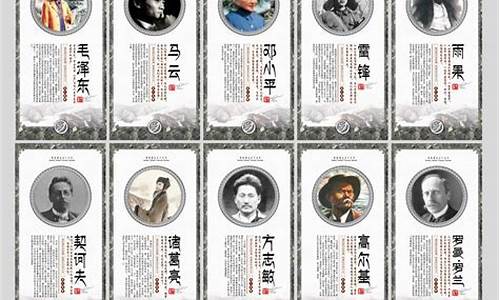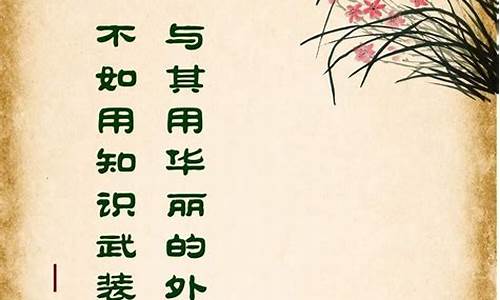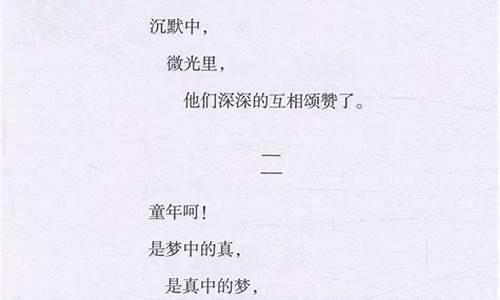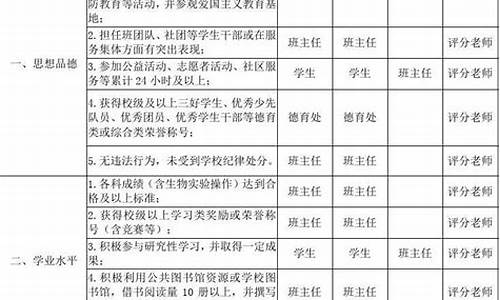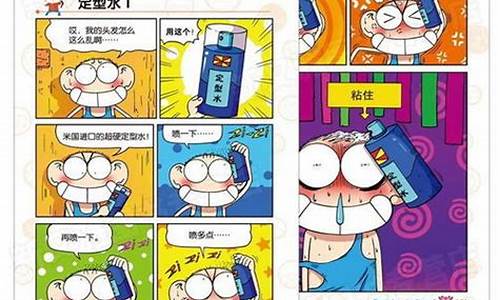小学英语单词句子总结大全集_小学英语单词句子总结大全集图片
1.小学英语三至六年级的所有重点单词和句子
2.求小学英语必备单词,句子(带中文解释)(人教版)
3.小学六年级pep英语单词.句子句型 谢谢哩
4.小学三年级英语重点句子知识点
5.人教版小学英语三年级、四年级、五年级、六年级上下册有哪些四会单词、四会句子
6.小学英语背短句
7.小学必会英语单词和句子

收集物品
stickers
football
picture
postcards
comics
autographs
stamps
星期:
Monday
Tuesday
Wednesday
Thursday
Friday
Saturday
Sunday
学习物品:
blackboard
schoolbag
eraser
book
chair
pen
pencil
pencil case
ruler
desk
tree
window
身
体
部首
eyes
nose
ears
arms
mouth
face
hair
hands
legs
feet
toes
teeth
衣
服
T
‐
shirt
jeans
cap
dress
socks
sweater
shoes
trainers
shirt
skirt
shorts
tie
blazer
trousers
blouse
cardigan
运动:
play
football
play
the
piano
stand
on
your
hand
play
football
swim
roller blade
ski
ride a horse
动
物
elephant
crocodile
mice
rabbit
lion
dog
pig
wolf
duck
budgie
fox
snake
hippo
cow
sheep
hamster
月
份
January
February
March
April
May
June
July
August
September
October
November
December
食物:
le
bananas
beef
chicken
drink
dumplings
fish
food
noodles
pork
porridge
rice
steamed bread
表
情
:angry
cry
feel
sad
scared
smile
stupid
tired
hy
颜色:
black
blue
colour
green
orange
pink
purple
red
white
yellow
brown
grey
生活物品:
floor
clock
lamp
sofa
light
mirror
wardrobe
chair
window
table
curtains
door
picture
形状:
triangle
circle
rectangle
square
句子
1.
---What are you doing on Sunday?
---
I’
m going to watch TV
.
She is going to sing.
He is going to play football.
Thay are going to dance.
2.I he got a pencil.
He you got a pet?
What is it?
What colour is it?
3.I often dream of my friends.
I sometimes dream of being a football star
I never dream that I can fly.
4.I get up at seven.
I go to school at eight.
I he 4 classes in the morning.
I he lunch at school at twelve.
I he sports at four.
I go home at five.
I do homework from six to seven.
I go to bed at nine.
5.Tom collects comics and stamps. He doesn
’
t collect postcards and stickers.
5.There is/are *** in/on/behind/under/in front of the ***.
6.---How much is it?
---It
’
s five yuan.
---How much are they?
---They are twenty yuan.
7.He is wearing a red sweater,a blue blazer,a red skirt and black shoes
8.---Can you swim?
---Y
es,I can./No,I cann
’
t.
Jim can play football and ski. He can
’
t swim and play the piano.
9---.what time is it?
---It
’
s half past ten.
It
’
s five to five.
It
’
s ten past two.
It
’
s quarter past three.
10.My best friend
’
s name is Tom
He
’
s ten years old.
His fourite colour is black.
His fourite food is noodles
His birthday is in may
.
He has got a dog.
Who
’
s your best friend?
How old is she?
When is her birthday?
What
’
s her fourite food?
What
’
s your name?
---How are you?
---
I’
m fine.
What
’
s your fourite colour?
What
’
s your fourite food?
What
’
s your fourite day?
What
’
s your fourite number?
What
’
s your phone number?
11.Has it got two legs?
Does it eat grass?
Does it eat other animal?
Does it live on a farm?
Is it green?
Can it fly?
Is it a sheep?
12.How many chairs are there?
How many pens he you got?
13.---what
’
s he doing?
---He is playing football.
He is swimming.
14---.how are you feeling today?
---
I’
m tired/sad/hy/angry
.
15.---where is my book?
---On the table.
祝学习进步。
小学英语三至六年级的所有重点单词和句子
#小学英语# 导语芬芳袭人花枝俏,喜气盈门捷报到。心花怒放看通知,梦想实现今日事,喜笑颜开忆往昔,勤学苦读最美丽。在学习中学会复习,在运用中培养能力,在总结中不断提高。以下是 无 为大家整理的《小学三年级英语单词大全》 供您查阅。
第一部分
I pron. 我
am v. (我)是
you pron. 你
are v. (你)是
driver n. 司机
in adv. / prep. 在屋里;在家
is zhang ling in? 张玲在家吗?
classmate n. 同班同学
oh, it's you. 哦,是你。
come in. 进来。
name n. 名字
nine n. 九
class n. 班
three n. 三
one n. 一
ten n. 十
two n. 二
good adj. 好的
good morning! 早上好!
new adj. 新的
from prep. 从
from beijing 北京人(从北京来的)
shanghai 上海
we pron. 我们
classmates 同班同学(复数)
desk n. 课桌,书桌
where adv. 在哪里
the art. 这(个),那(个)
on prep. 在…上
chair n. 椅子
wall n. 墙
ball n. 球
box n. 盒子
under prep. 在…下面
floor n. 地板
at prep. 在
zoo n. 动物园
at the zoo 在动物园里
park n. 公园
classroom n. 教室
factory n. 工厂
of prep. 的
square n. 广场
capital n. 首都
China n. 中国
the capital of China 中国的首都
love n. / v. 爱
motherland n. 祖国
red adj. 红的
green adj. 绿的
blue adj. 蓝的
colour n. 颜色
yellow adj. 黄的
black adj. 黑的
white adj. 白的
has v. 有
star n. 星
our pron. 我们的
national adj. 国家的
national flag 国旗
cap n. 帽子
coat n. 大衣,上衣
he vt. / vi. 有
long adj. 长的
short adj. 短的,矮的
big adj. 大的
small adj. 小的
or conj. 或,还是
guess n. / v. 猜
hey int. 嗨
tall adj. 高的
old adj. 年老的
young adj. 年轻的
Chinese adj. 中国的;n. 汉语;中国人
第二部分
English adj. 英国的;n. 英语;英国人
over prep. 越(过)
there adv. 那儿
over there 在那边
American adj. 美国的 / n. 美国人
other adj. 另外的
an art. 一(个)
le n. 苹果
orange n. 桔子
hand n. 手
egg n. 蛋
umbrella n. 伞
school is over. 放学了。
home n. 家
go home 回家
rain n. 雨;下雨
it's raining. 正在下雨。
can't 不能
now 现在
six n. 六
much adj. 许多
how much 多少
eleven n. 十一
eight n. 八
twelve n. 十二
seven n. 七
minus prep. 减
here adv. 这儿
here you are. 给你
fen 分
money n. 钱
they pron. 他(她,它)们
twenty n. 二十
these pron. 这些
those pron. 那些
door n. 门
window n. 窗
picture n. 图画
talk n. / v. 谈
about prep. 关于
flower n. 花
some pron. 一些
pink n. / adj. 粉红(色)的
boat n. 船
lake n. 湖
skirt n. 裙子
clean adj. 清洁的
shirt n. (男式)衬衫
dirty adj. 脏的
cup n. 杯子
glass 玻璃杯
picture-book 图画书
he a look 看一看
sure adv. 当然,一定
第三部分
and conj. 和
grade 年级
maths n. 数学
your pron. 你们的
their pron. 他(她,它)们的
pioneer n. 先锋
young pioneer 少年先锋队员
scarf n. 领巾
red scarf 红领巾
both adj. 两
all adv. / adj. 全部,都
school n. 学校
peasant n. 农民
soldier n. 士兵
doctor n. 医生
class is over. 下课了。
play vi. / vt. 玩
there are 有
do v. 做
what are they doing? 她们在做什么?
pingpong n. 乒乓
right adj. 对的
join vt. / vi. 参加
them pron. 他(她,它)们(宾格)
求小学英语必备单词,句子(带中文解释)(人教版)
1. Wo's your English teacher ?
Mr Carter.
What’s he like?
He's tall and strong.
2.Is she quiet?
No,she isn't. she's very active.
Is she strict?
Yes, she is,but she's very kind.
3.What day is it today?
It's Wednesday.
What do you he on Thursdays?
We he English, math and science on Thuedays.
4.What do you do on Saturdays?
I watch TV on Saturdays.
What about you?
I do my homework, too.
5.What do you he for lunch on Mondays?
We he tomatoes,tofu ahd fish.
What would you like for dinner?
I'd like some potatoes and green beans.
6.What's your fourite fruit?
I like les, they're sweet.
I don't like grapes.They're sour.Bananas are my fourite. They're tasty.
小学六年级pep英语单词.句子句型 谢谢哩
小学英语必背的单词,句子等资料,
我们都整理成集,分享给你,希望对你有帮助。
《小学阶段语文、英语、数字、音乐、美术、体育、自然、科学等》百度网盘大全
链接:s://pan.baidu/s/1znmI8mJTas01m1m03zCRfQ
?pwd=1234?提取码:1234
对于小学阶段所涉及到的各科各类资料,我拍改们都收集、归类并定期更新。欢迎有需求的家长、老师收藏。
小学三年级英语重点句子知识点
Unit One
1. by 经….;乘….
2. foot 脚
3. bike 自行车
4. bus 公共汽车
5. train 火车
6. plane 飞机
7. ship 轮船
8. subway 地铁
9. how 如何;怎样
10. go to school 去上学
11. then 然后
12. fifth 第五
13. traffic 交通
14. traffic light 交通灯
15. traffic rule 交通规则
16. stop 停;停车站
17. wait 等;等待
18. remember 记住
19. get to 到达
20. find 寻找;找到
21. difference 不同;区别
22. same 相同的
23. every 每个;所有的
24. country 国家
25. always 总是;一直
26. mean 意思是
27. drive 驾驶
28. right 右边的
29. side 边
30. England 英国
31. Australia 澳大利亚
32. however 但是
33. left 左边的
34. if 如果
35. must 必须;一定
36. know 知道;认识
Unit Two
37. library 图书馆
38. post office 邮局
39. hospital 医院
40. cinema **院
41. bookstore 书店(美式)
42. science museum 科学博物馆
43. excuse me 对不起;请原谅
44. where 在哪里
45. please 请
46. next to 与… …相邻
47. far 远
48. supermarket 超市
49. bank 银行
50. after school 放学以后
51. want 想要
52. buy 购买
53. a pair of 一双
54. shoe store 鞋店
55. get off 下车
56. minute 分钟
57. north 北
58. south 南
59. east 东
60. west 西
61. turn 转弯
62. right 右边;对的
63. left 左边
64. straight 成直线地
65. then 然后
66. twelfth 第十二
67. party 聚会
68. tell 告诉
69. start 开始
70. take 乘坐;带走
71. look for 寻找
Unit 3
72. next week 下周
73. this morning 今天上午
74. this afternoon 今天下午
75. this evening 今天晚上
76. tonight 今晚
77. tomorrow 明天
78. take a trip 作旅行
79. read a magazine 阅读杂志
80. go to the cinema 去看**
81. theme park 主题公园
82. the Great Wall 长城
83. busy 忙碌的
84. together 一起地
85. comic book 书
86. post card 明信片
87. newspaper 报纸
88. magazine 杂志
89. dictionary 字典
90. shoe store 鞋店
91. buy 购买
92. fruit sand 水果摊
93. pet shop 宠物商店
94. need 需要
95. plant 植物
96. else 其他;另外
. shop 商店
Unit 4
98. hobby 爱好
99. ride a bike 骑自行车
100. dive 跳水
101. play the violin 拉小提琴
102. make kites 制作风筝
103. collect stamps 集邮
104. show 展览
105. pen pal 笔友
106. dear 亲爱的
107. twin 双胞胎之一
108. look 看上去
109. something 某事物
110. must 一定;肯定
111. fun 快乐;乐趣
112. with 同…;和…
113. TV reporter 电视台记者
114. live 居住;住
115. teach 教
116. go 去
117. watch (观)看
118. read 读;看
119. does 做;干
120. doesn’t=does not 不做;不干
121. different 不同的
122. week 星期;周
123. say 说;讲
124. soon 不久
125. excited 兴奋的;激动的
Unit 5
126. singer 歌唱家;歌手
127. writer 作家
128. actor 男演员
129. actress 女演员
130. artist 画家
131. TV reporter 电视台记者
132. show 演出;表演;节目
133. Hong Kong 香港
134. engineer 工程师
135. accountant 会计
136. policeman (男)警察
137. salesperson 销售员
138. cleaner 清洁工
139. company 公司
140. where 在哪里;到哪里
141. work 工作
142. factory 工厂
143. design 设计
144. tip (小)建议
145. help 帮助
146. money 钱;金钱
147. well 好;对
148. enjoy 喜爱;享受…乐趣
149. tourist 旅行者;旅游者
150. way 路;道
151. motor cycle 摩托车
152. police 警方
Unit 6
153. rain 雨;下雨
154. cloud 云;云彩
155. vapour 蒸汽;水汽
156. sun 太阳
157. stream 小河;小溪
158. come from 来自
159. shine 照耀
160. become 变成
161. little 小的;少的
162. drop 珠;滴
163. wake up 醒来;醒
164. feel 感觉到;感受到
165. think 想;思考
166. meet 遇见;碰见
167. high 高的
168. other 其他的;另外的
169. fall 落下;跌落
170. down 向下
171. into 进入
172. come out 露出;出现
173. again 又;再
174. seed
175. soil 土壤
176. sprout 苗;芽
177. plant 植物;种植
178. should 应该
179. then 然后
180. garden 花园
181. easy 简单的
182. put 放;放置
183. several 几个;一些
184. day 天;白天
185. see 看见
186. pot 锅;碗;瓢;盆
187. lovely 可爱的;美丽的
188. make sure 核实;查明
189. get 得到
190. month 月份;月
191. old 老的;(某)年龄的
192. still 仍然;还是
193. come on 加油;过来;继续
194. hardly 几乎没有;几乎不
六年级上册句型:
How do you go to school? 你怎么去学校?
Usually I go to school on foot. 通常我步行上学。
Sometimes I go by bike.有时候我骑车。
How can I go to Zhongshan park?我可以怎么去中山公园?
You can go by the No. 15bus.你可以坐15路汽车。
Where is the cinema,please?请问**院在哪里?
It’s next to the hospital.在医院旁边。
Turn left at the cinema, then go straight. It’s on the left.在**院左转,然后直走,就在它的左边。
What are you going to do on the weekend?你周末要干什么?
I’m going to visit my grandparents this weekend.我这个周末要去看爷爷奶奶。
Where are you going this afternoon?你今天下午要去哪里?
I’m going to the bookstore.我要去书店。
What are you going to buy?你要去买什么?
I am going to buy a comic book..我要去买一本书。
What’s your hobby?你的爱好是什么?
I like collecting stamps. He likes collecting stamps, too.我喜欢收集邮票。他也喜欢收集邮票。
Does she teach English?她教英语吗?
No, she doesn’t. / Yes, she does.不,她没有。/是,她是。
What does your mother do?你妈妈干什么的?
She is a TV reporter.她是个记者。
Where does she work?她在哪儿上班?
How does she go to work.?她怎么去上班?
Where does the rain come from?雨是从哪里来的?
It comes from the clouds.它来自云。
How do you do that?你怎么做的?
What should you do then?接着你可以做什么?
人教版小学英语三年级、四年级、五年级、六年级上下册有哪些四会单词、四会句子
#小学英语# 导语词汇量是制约外语学习效率的最重要因素。词汇是构成语言的最基本材料,是英语的根基,始终贯穿于英语学习的整个过程,是其他方面学习的根本性前提,即单词高于一切!强化单词学习的重要紧迫性不言而喻!以下是 整理的相关资料,希望帮助到您。 篇一 1. 介词“on?” “in?”的短语
on the chair/in the pencil-box/in the desk/in the bag/in the sky
2. 特殊疑问句“where”“what”“who”的用法
①特殊疑问句“where”的用法:
Where is …? ----It?s on…. / It?s in….
②特殊疑问句“what”的用法:
What?s on the table? — A plate of cakes.
③特殊疑问句“who”的用法:.
Who is he/she? He/ She is….
They are brother and sister.
当不知道是谁时,人称代词用it:
Who is it? ----- It?s me.
3. 感叹句用what和how: what修饰名词;how修饰形容词
How nice on a ship! How nice!
What a fine day! What a big cake! 篇二
1.let’s 句型:let?s =let us
Let?s make a blouse/vest.
Let?s run a race. /Let?s play games.
Let?s ride it.
Let?s give her nice things.
Let?s sing“Hy Birthday to You”.
Let?s count the candles.
Let me help you.
Let me open/close the door.
Let me get the les/pears.
Let?s go home.
2. can句型:
We can?t let him in.
She can’t swim.
I can?t find/see….
Can she swim? Yes, she can. / No, she can’t.
Can you make cakes? Yes, I can. / No, I can?t.
Can you fly it? —Of course,I can.
3.主语是单数第三人称,谓语动词加“s”:
look like 看起来像
She looks like Steve.
Steve is Eve’s brother.
I like him, and he likes me.
4.“he”的用法:
①“he”表示“有”
I he a kite/ a new bike.
We he some nice things for you.
②“he”表示“吃”
He a coke/an le. —Yes, thank you./ No, thanks.
Please he the cake. —Thank you.
Let?s he the good things.
小学英语背短句
6B词组(1)Unit 1
1. on Sunday morning 在星期天早晨 2. go for a walk 去散步
3. take a walk 散步 4.Do you\they look the same ?你们\他们看起来一样吗?
5. be glad to see them 很高兴见到他们
6. under a big tree 在一棵大树下 7. he a chat 聊天
8. a twin sister 双胞胎姐姐/妹妹 9. twin sisters\brothers 双胞胎姐妹 \兄弟 10. as tall as 和…一样高 11. look the same 看上去一样
12.ten years old十岁13. twenty minutes younger\older than… 比…小\大二十分钟
14. want to do sth. 想做某事 15. one day 某一天
16. the only child in my family 我家的独生子
17. the man in black 穿着黑色衣服的男人
the girl in the yellow T-shirt 穿**T恤的女孩。
18 Who’s younger, you or Su Yang? 谁年龄小,你还是苏扬?
19. Do you he any brothers or sisters? 你有兄弟姐妹吗?
Does he he any brothers or sisters? 他有兄弟姐妹吗(三单)
20. He’s one year younger\older than me. 他比我小\大一岁。
21. You’ve got a brother. 你有一个哥哥。
22. I’m taller than Su Yang. 我比苏扬高。
23. Who’s taller than Did? 谁比Did高? Mike is.
24. Whose school bag is heier, yours or mine? 谁的书包重,你的还是我的?Mine is.
Unit 2
1. be good at 擅长 2. be good at Chinese\PE擅长语文\体育
3.Be good at dancing\singing\running 擅长跳舞\唱歌、跑步
4.am \is\are not good at 不擅长 5.be better at 更擅长(than)
6. do well in 在……方面做得好7.do well in Chinese\English在语文、英语方面做得好9.do well in swimming\jumping在游泳、跳高方面做得好
9. don’t \doesn’t(三单)do well in 在……方面做得不好
10.do better in 在……方面做得更好(than)
11. talk to sb. about sth. 和某人谈有关某方面的情况
12. need help with English 在英语方面需要帮助
13. run faster than… 比……跑得快
14. a good football player 一位好的足球运动员
15. some of the boys 其中一些男孩
16. Don’t worry. 不用担心。
17. do some exercise 做练习/做运动 do more exercise 多做练习/运动
18. get stronger 变得更健壮 19. jog to school 慢跑去学校
20. play ball games 玩球类运动 21. all of us 我们所有人
22 some of us我们中一些人 23. be late for school 上学迟到
24. What’s the matter? 怎么了? = What’s wrong with with you?
25. I’ll get up earlier every day and do some exercise before I go to school. 我会在每天早点起床,上学前做些运动。
26. Please don’t be late again. 请下次别再迟到。
27. Shall we start our lesson now? 我们现在开始上课吧?
28. You he five minutes to remember them. 你们有五分钟的时间来记住他们。29.good idea 好主意 30.see sb.doing sth看见sb做sth
31.Do the boys\they jump higher than the girls? Yes,they do.
32.Does Jim swim slower than Did? No,he doesn’t.He swims faster than Did.
Unit 3
1. Excuse me, can you tell me the way to …? 请问,你能告诉我去……的路吗?
2. go\run along this street 沿着这条街走\ 跑 3. turn right/left 向右/左拐
4. at the first crossing 在第一个十字路口
5. on your left/right 在你的左/右边 6. take bus No. 5 坐5路车by bus 乘公共汽车
7. a long walk一段很长的路
8. there’s a bus every five minutes 每5分钟有一辆公交车
9. in front of 在……前面 10. get off 下车 get on上车
11. at the first\second\third stop 在第一\二\三站
12. the History Museum历史博物馆 13. a shopping centre 购物中心
14. a post office 邮局 15. a middle school 中学
16. a primary school 小学 17. a train station 火车站
18. last Sunday afternoon 上个星期天下午19. a book about animals 有关动物的书
20. run out of 跑出…… 21. stop thief 抓贼
22. start to run 开始跑 23. get sth. back 把某物拿回
24. come to help 来帮忙 33.get sth. out of 把sth.拿出……
25. He’s asking Yang Ling how to get there. 他在问杨凌怎么去那儿。
26.How can I get to the shopping centre?我如何到购物中心?
27.You can’t miss it. 你不会错过的。28. How far is it from here? 离这儿有多远?
29. about a kilometer away. 大约一公里远。 30.get there faster 更快到达那儿。 31.in Zongshan street 在中山街上 32.on Huaihai Road 在淮海路上
Unit 5
1. be going to do sth 将做某事 2. next week 下个星期
3. work there for one year 在那工作一年 4. want to know about sth 想知道某事
5.ask some questions about the weather 问许多关于天气的问题。
6.What’s the weather like in spring 春天天气怎样?
It’s …….What do you usually do? I usually go rowing and fishing.
What does he usually do?He usually goes rowing and fishing.
7. in spring/summer/autumn/winter 在春天/夏天/秋天/冬天
8. in the countryside 在乡村 9. in New York在纽约
10.go to farms in the countryside 去乡村农场。11.pick les \oranges\peaches摘12.Sounds great! 听起来很棒!13. It’s warm most of the time 大部分时间是温暖的
14.Does it often rain there?那儿经常下雨吗?It often rains there. 那儿经常下雨。(三单) It is often rainy there.那儿经常是下雨天。(表示天气) It is raining there now.那儿现在正下雨。(现在进行时)
15. make snowmen with my friends 和我的朋友一起堆雪人
16. It’s great fun. 这很有趣。It’s a funny cartoon 这是一部有趣的卡通片。
17. need some warm clothes for winter 需要保暖衣服过冬
18. go rowing and fishing 去划船钓鱼 19. go jogging 去小跑
20. It’s usually very hot, as hot as in Nanjing. 通常很热,很南京一样热。21. What about summer? 夏天怎么样?
21. There’s a lot of rain in spring. 在春天雨水很多。
22. Which season do you like best? 哪个季节你最喜欢?I like ……
Why? Because it’s …….I Can …….
23. turn green 变绿 24. get shorter 变更短 25. go swimming 去游泳
Unit 6
1. he school 上课,有课 2. talk about 谈论 3. see a Beijing opera 看京剧
4. this afternoon 今天下午 5. Would you like to join us? 你想和我们一起去吗?
6. by the way 顺便说/问一下 7. play at the concert 在音乐会上演出
8. play the violin/piano 拉小提琴/弹钢琴 9. he a picnic 进行野餐
10. go on an outing 去远足 11. see a play 看戏
12. take part in a singing contest 参加 歌咏比赛
14. a sports meeting 一场运动会 15. he a class outing 进行班级远足
16. class project 班级课题 17. at the bus stop 在公共汽车站
18. come home 回家 19. meet at one thirty在1:30见面
20 talk about their plans for the weekend 讨论他们的周末
21.What are we\they going to do tomorrow? We\They are going to…….
What is he\she going to do tomorrow? He\She is going to…….
23.the girl with yellow bowl拿**碗的女孩 24.by the window透过窗户
Unit 7
1. yesterday afternoon 昨天下午 2. some writing paper 一些信纸
3. What for? 为什么 4. write a letter 写一封信
5. listen to music 听音乐 6. make model planes 制作模型飞机
7. You both he the same hobbies 你俩有同样的爱好 8. I hope so. 我希望如此。
9. tell sb about sth. 告诉某人有关某事的情况
10. of course 当然 11.a fax machine 传真机
12. a telephone number 电话号码 13. write to sb 给某人写信
14. collect stamps 收集邮票 15. draw a picture 画画
16. make a kite 做风筝 I hope so 我希望如此 give sb. sth.=give sth. to sb.
17. do my\his\her homework 做我的、他的、他的家庭作业
18. ask for 要求 19. some other subjects 一些其他课程
20. finish primary school 小学毕业 21. go to middle school 上中学
22. know everything about 了解有关……的一切 tell sb. about sth.告诉某人某事
23. penfriend club 笔友俱乐部 24. with best wishes 祝好
25.Thank you for your letter.谢谢你的来信。
26.turn black and blue 变得青一块紫一块
27.Do you\Does he he any hobbies? Yes,I do\he does. I like\He likes listening to music and making model ships.你有\他有一些兴趣爱好吗?是,我喜欢\他喜欢听音乐做船模型。
28.What are your hobbies? I like listening to music and making model ships. 你的兴趣爱好是什么?我喜欢听音乐做船模型
29.my e-mail address 我的邮箱地址 30. my fourite subjects 我最喜欢的科目 31.There are only three of us我们只有三口人
代词用法:
人称代词 物主代词
主格 (句首) 宾格(句中或句尾) 形容词性+东西 名词性
I me my mine
we us our ours
you you your yours
he him his his
she her her hers
it it its its
They them their theirs
特殊动词过去式:
原形 过去式 原形 过去式 原形 过去式
am is was grow grew stand stood
are were he has had sweep swept
begin began keep kept swim swam
buy bought know knew take took
catch caught let let teach taught
choose chose make made tell told
come came mean meant throw threw
do did meet met understand understood
draw drew put put write wrote
drink drank read read
drive drove run ran
eat ate see saw
feel felt say said
find found shake shook
fly flew show showed
forget forgot sing sang
get got sit sat
give ge sleep slept
go went speak spoke
小学必会英语单词和句子
1.小学英语常用短语有哪些
clean the floor 扫地 clean the house 打扫房间 collect stamps 集邮 come back 回来 come from 来自…… come here 来这里 come in 进来 come on 过来/加油 come to tea 来喝茶 cook the meal 煮饭 crash into 撞向 dig a hole 挖坑 do housework 做家务 do morning exercises 晨练 do one's homework 做作业 do some reading 读点书 do sports 做运动 draw a picture 画画 drink some water 喝些水 drive a car 驾车 fall over 跌倒 fill the hole with earth 用泥土填坑 get off 下车 get out of 走出(……之外) go and he a look 去看一看 go back 回去 go boating 去划船 go fishing 去钓鱼 go for a walk 去散步 go home 回家 go on a diet 节食 go out 出去 go shopping 去购物 go sightseeing 去观光 go skating 去溜冰 go skiing 去滑雪 go straight on 直走 go swimming 去游泳 go to bed 去睡觉 go to school 去上学 go to the cinema 去看** go to work 去上班 he a bath 洗澡 he a Chinese lesson 上语文课 he a cold 感冒 he a fever 发烧 he a good time 玩得开心 he a headache 头痛 he a look 看一看 he a picnic 举行野餐活动工 he a rest 休息 he a stomachache 胃痛 he a tooth-ache 牙痛 he a trip 去旅游 he a try 试一试 he been to 到过 he breakfast 吃早餐 he fun 玩得开心 he lunch 吃午饭 he some coke 喝些可乐 he supper/dinner 吃晚饭 he time 有时间 just a minute 等一下 just now 刚才 keep a diary 记日记 let me see 让我想一想/让我看一看 listen to music 听音乐 listen to the CDs 听CD 碟 listen to the radio 听收音机 make friends 交朋友 make the bed 整理床铺 mark the pupils' homework批改作业 next to 下一个 no problem 没问题 paint a picture 涂画 pick up 捡起 plant trees 种树 play badminton 打羽毛球 play basketball 打篮球 play cards 打牌 play football 踢足球 play games 玩游戏 play table tennis 打乒乓球 play tennis 打网球 play the guitar 弹吉他 play the piano 弹钢琴 put away 放好 put on 穿上 put the tree into the hole 把树放进洞里 ride a bike 骑自行车 see a film 看** surf the Net 上网 take a message 传递信息 take exercise 进行锻炼 take medicine 服药 take off 脱下 take photos 照相 turn off 关闭 turn on 打开 wait a moment 稍等一下 wait for 等候 wash clothes 洗衣服 wash dishes 洗碟子 watch a football match 看足球赛 watch TV 看电视 water the flower 浇花 water the tree 浇树 write a letter 写信 摘自百度。
2.小学英语6年级所有需要背的(不是单词.短语.句子)你说的是语法喽,这得有多少啊,我小学的时候英语课都睡觉,导致初中升学考口语测试只会说My name is xxx. I'm 12 years old.现在高中英语还不是全年段前十。
小学英语真的没什么语法可说的,主要是单词的积累,这是为你初中学习打下基础,基础不扎实,学再多语法只能说也没用,你知道以上的已经很不错了。
你这么对英语有兴趣,以后肯定比我学的好,我们上初一时英语都是从头教过,我基本都是100分。(小学英语不重要,主要是培养兴趣。)
学好语文数学,以后对你有帮助,多背背宋词,不要局限在唐诗上,以后会有很多帮助,数学要培养发散性思维。
3.小学生的英语要不要背或者默写自己如果觉得能够很好把握上课的内容的话,就不用背得太多。
课本每一页都有幽默生动的画面,而文字材料相对来讲占的比例小一点,我们可以看图说话,看表格讲句子,只要能熟练地运用语言,我们的目的也就达到了。这种全新的背诵模式,完全不是死记硬背。
它的高明之处,是把背诵变成了学生在具体的语言环境中运用语言的过程。同时,具体语言情境中的背诵充分发挥了学生的智力作用,因而能达到快速、高效。
总之,注意在学习方法上的突破,养成良好的学习习惯和形成有效的学习策略;培养自主学习的能力以及观察、记忆、思维、想像能力和创新精神,拓展视野,为今后的学习打下基础。
4.小学英语有哪些好的背诵方法和技巧一、先倾听后背诵。
学语言模仿是关键,所以在背之前要先听,而且要反复听,这样能够学到标准的发音。这一个阶段是比较枯燥的,但非常有效。
既然背课文是练习英语口语行之有效的方法,所以在背的时候就要特别注意发音。 二、先理解后背诵。
一篇课文,首要问题是要非常清楚它的意思。 只有在这个基础上才能开始努力去背。
死记硬背是没有效果的,在背之前首先要弄懂文章的中心内容,要以文章内容为线索进行记忆。要弄懂上下句之间的内容和逻辑上的关系,而后才是语言上的起承转合。
这样的背诵对日后的写作和口语帮助很大。 三、选择最佳记忆时间段背诵。
早晨是练习口语和背课文的黄金时间,要充分利用。每天早起半个小时,大声朗读背诵,不但对英语,对自己的心情和一天的状态都有好处。
背课文一天之际在于晨,心中有美文,下笔如有神,心中有篇章,做题不慌张。我们要知道,背课文是一项虽然艰苦却其乐无穷的学习方式。
只要把握的好,就能够使学生在快乐和成就感中学习。 四、选择典型文章进行背诵。
文章一旦背下就会记住很长时间甚至永远不忘,对今后的英语学习产生深远影响。所以背要选那些真正典型的文章。
以完全正确和有代表性的文章来丰富语言资料。 。
5.英语句子怎么背首先第一:不要把精力花在那些极少的,非常难以记下来的单词上。
人们总是会有一些记不住的东西,比如说某些con开头的单词。因此也不要强迫自己记下来所有的单词,这根本就不现实,而且很有可能我们花了好多时间背下来的那些单词,还是那些不常见的单词,换句话说记下来也没用。
因此,只要要求我们自己记下来95%的单词就可以了。 第二,单词熟悉的程度是“不需要任何的思考立即就能认出来”。
很多考友们在背单词的时候,总是过高的估计了自己对单词的熟悉程度,换句话说,其实我们面对很多单词的时候,是需要稍微思考一下,才能想起来这个单词是什么意思,而如果一个单词需要6秒,那么10个单词就需要1分钟的时间,这样我们自然就没有时间来思考句子到底是什么意思,同时也就没有时间来思考到底哪个选项才是正确的。 因此,单词一定要非常的熟悉,so that,要如此之熟悉,以至于像book一样熟悉! 第三,“一开始,只记第一释义”。
显然,很多考友都知道book这个单词不仅仅有名词,书籍的意思,还有动词“预定”的意思。但是请各位考友注意,我们最开始背这个单词的时候,其实仅仅是记住了这个单词的第一个意思,也就是名词“书籍”的这个含义。
至于动词“预定”这个含义,是我们到很久之后,才遇到的,而且我们还会发现,其实当我们知道book这个单词有动词“预定”这个意项的时候,也是很快就把这个单词给记住了。换句话说,在背单词的时候,一开始仅应该去记住这个单词的第一释义,至于其他的意项,应该是记住这个单词之后,再过一次单词书,然后直接就记下来的。
第四,“知道词性”。其实我们在阅读句子的时候,很多时候头脑里是会默认通过语法去判断句子的结构,进而准确的判断句子的含义的。
当我们通过语法去判断句子结构的时候,里面每一个单词的词性,是所有句子语法判断的基础,换句话说在背单词的时候,只需要背这个单词的第一释义,同时顺手把这个单词的词性记忆一下,就完全足够了。 第五,不记周边。
很多单词,其实我们在背的时候,总是喜欢记住这个单词周边的每一个细节,比如说记忆方法,同义词,反义词,但是实际上这是十分浪费时间的。其实,对于你们人类来说,背单词最难的一步,其实是第一步,也就是将这个单词与他的第一释义记下来的这一步,至于之后的其他释义,同义词,反义词,例句都是很容易添加上去的。
第六,不关注用法。可以说,这一条是十分具有争议性的。
尤其是对于英语非常好的人来说更是这样,因为很多人在学习英语的时候,都是扎扎实实的遇到一个单词,就在词典里查出这个单词的每一个细节,然后一点一点的去使用,从而完全掌握每一个单词的。但是实际上对于考生来说,大多数的单词认识即可。
哪怕是作文之中用到单词,其使用的单词量也是十分有限的,其实可以说,只要你把四级单词非常熟练的应用了,你的单词就已经很好了。因此,如果将这句话加一个注释的话,就应该是,四级单词在背完单词后,一定要关注用法,但是超过四级单词的,就可以先不用关注用法,直到需要用到的时候再查词典。
第七,不关注发音。单词发音的问题,可以说是一个很trick的问题,因为我们听力里的时候一定会用到发音,但是在记忆的时候如果加入发音,就会增加很大的工作量。
而且,我们还会注意到,其实有些单词的发音在句子之中时非常相似的,比如说side和sight,notice和know this,当我们在做听写的时候,会发现这些发音经常会弄混,其结果是,我们最终还是要靠听写才能慢慢的区分两者之间的差别。 换句话说,背单词的时候,只需要大致上记一下单词的发音即可,最后真正让耳朵记住一个单词,对于考试来说,还是要靠听写来解决的。
背单词,很多考友都觉得是一件特别挠头的事情。很多时候,之所以会出现这样的问题,其实是因为我们的理念是有问题的,因为我们本身的对于记忆的误解,使得我们其实一直是在做一件类似于狗熊掰苞米的活动。
各位别急,等无老师慢慢道来。 其实对于你们人类来说,想要记住一件事情,考得并不应该是可以的记忆,而应该是有意识地重复。
换句话说,在记单词的时候,其实最能帮助我们记忆的,并不是最初可以的去背单词的那一次,相反的,其实对于我们记住一个单词最有帮助作用的,应该是后来我们复习的那几次,那才是最有价值的。 这种情况就非常类似于我们出去旅行,一路上会有很多次要填写号,比如说网上定机票要填写号,我们定宾馆也要填写号,我们领博物馆的免费门票也要填写号。
本来我们之前对于自己那长长号是记不下来的,但是这三番五次的使用之后,我们会发现,原来以后再写号,就再也不用拿出了,因为自己竟然全都记住了。 这其实就是一个非常好的对于记忆的院里的体现,换句话说,如果真的让我们去背自己的号,我们会发现非常的困难,但是当我们使用很多次之后,我们就会发现,原来我们没有刻意的去记号,但是号竟然一字不差的全都背下来了。
这一切的一切就是因为:“重复比背更重要!” 其实我们背单。
6.怎么记住小学英语单词不要让孩子为背诵高中英语单词或者初中英语单词哭泣! 简单到家一句话:听故事就可以背单词啊.. 解开单词的魔咒--用右脑背单词 12年美国科学家佩斯理因为发现了左、右半脑的分工,而获得诺贝尔奖,此后科学家也论证了右脑的储存和应用能力是左脑的100万倍。
用右脑背单词的方式,是调用右脑的形象化记忆来完成的,所以感觉比较轻松。TOM先生历经10年解开了背单词痛苦的魔咒,用右脑的记忆方式转化掉了死记硬背的痛苦。
你通过语音讲述给别人听如下案例,看是否能记住,效果就出来了,单词都是讲解,而不是文字故事: (1)这个女孩子真是个土匪妹妹啊,一次消灭了麦当劳的6根鸡腿,你是说还是个女的,那么能吃啊,是啊,所以我就叫她“土匪妹妹噢”。 发音:匪妹噢:单词是:female 中文意思为:女性, 女人 (2) 把蚊子拿到放大镜下仔细一看,你会发现:它的头发上打着沫丝,头形是K型:发音:沫司K头:单词是:mosquito中文意思为:蚊子(哦,明白了,不是纯粹的中文发音,只是利用中文的意思把单词融入一个场景来记单词,是吗?是的!)通过这个途径记忆的结果是:无枯燥的记忆住了单词,且达到的熟练程度为脱口而出。
用右脑背单词的保证如下(1)所有单词故事的精彩程度85%都如以上案例。(2)《用右脑背单词》课程的所有单词都编辑成了故事,只要听讲述故事就可以记忆单词,按照教学大纲小学初中版、高中版所有的单词各用10多小时的时间可通学一遍,20多小时可把大学4-6级的所有单词通学一遍。
学习3-5遍可以记忆住85%以上。分为高中英语单词,初中英语单词,小学英语单词,大学英语单词。
如果你想背单词,那么请先点出: 你背诵单词的目的是: 为了应付书面考试 还是提高口语听力, 还是二者都有。 凡是想提高“提高口语听力”中的词汇的, 不放看看下面的关于对于单词记忆的最真实的客观评价: 首先来看 用右脑背单词 的一个案例:(如果如下的文字用语音讲述,记忆效果会更好) 这个女孩子真是个土匪妹妹啊,消灭了一个麦当劳的6根鸡腿,你是说还是个女的,那么能吃啊,是啊,所以我就叫她“土匪妹妹啊。
单词:发音:匪妹噢:female 。 中文意思为:女性, 女人, 雌兽adj。
女性的, 女子的, 妇女的, 雌的, 柔弱的。 关于femal单词的这个记忆过程,是一个典型的完全利用暗示学的原理来教学的,让你在听故事的时候产生:“注意力加强,注意力思索,和注意力融合”的记忆方暗,故事的最后才挑明是给你讲述的哪个单词,这与19年BBC广播电台播放的 用右脑背单词 节目异曲同工。
用右脑记忆单词的整个过程是:用右脑背单词》是应用暗示学的原理,讲述哪个故事是不让你知道的,另外从来不如上述一样公开文字说明,而是仅仅用语音讲述故事,绝对不是文字故事。用声音讲述,就是标准发音了,因为声音你想怎么拐弯就怎么拐弯,而不是趋向标准发音了。
(哦,明白了,不是纯粹的谐音英语,而是把单词的发音记忆中文意思和应用环境组合成一个故事,让你在听故事过程中,把单词发音和中文意思进行混合记忆,并且整个过程都是利用暗示教学方法)『如果想了解更多关于用右脑背单词,可以在网络上搜索“用右脑背单词”』 最为可贵之处在于,用右脑背单词,每个单词的记忆过程都是利用暗示学方法来记忆,并且每个单词都编制了一个精彩的故事,大学英语4-6级别的所有单词都编制成了精彩的故事。 可以说脑力劳动量非常的巨大。
关于写法,因为单词的发音除个别的外,其字幕组合都是有规律的,往往只要能读出但的就能书写出来。《用右脑背单词》课程的所有单词都编辑成了故事,只要听讲述故事就可以记忆单词,用20多小时的时间把大学4-6级的所有单词通学一遍。
学习3-5遍可以记忆住75%以上. 如果你是为了紧紧记忆单词的写法,那么可以利用词根词缀活着其他字母形式的联想来进行记忆。但是不能保重记忆住了写法,在口语听力中能派上什么用处。
另外需要指出的是:如果仅仅是学习一个方法,然后自己去利用这个方法去记忆所有的单词,对于背诵单词的者来说,一样是枯燥无味的记忆过程。 一样的痛苦不堪。
用右脑背诵单词的方法最根本的特色之处就是能让学习者摆脱记忆的痛苦和枯燥无味。用右脑背单词的作者耗费了多年的时间潜心研究单词的记忆,并且 目前杨未然先生,把自己编辑整理的部分单词故事出版了,而且可以通过图像讲解和说明,看可以背单词。
这则实例说明《用右脑背单词》创生的意义是----把能记忆住单词作为开发的唯一标准。 (并且摆脱记忆过程中的枯燥和痛苦) TOM,先生从事英语教学与研究工作。
主要研究怎样提高口语和听力所需要的高频单词,怎样把单词记忆到脱口而出的熟练程度。在漫长的岁月里,背诵了《用右脑背单词》,在浩如烟海的单词领域里,根据19年BBC广播电台播放的用右脑背单词模式,创造了轻松愉快的《用右脑背单词》课程。
『如果想了解更多关于用右脑背单词,可以在网络上搜索“用右脑背单词”』 分为高中英语单词,初中英语单词,小学英语单词,大学英语单词。 单词记忆的标准不一样: 。
7.谁告诉我you--you--your--yours--yourselfshe--her--her--hers--herselfhe--him--his--his--hisselfit--it--its--its--itselfwe--us--our--ours--ourselfthey--them--their--theirs--theirself以she为例,she是人称代词,her是其宾格,her同时也是其形容词性物主代词,hers是其名词性物主代词,herself是其反身代词(someone's self)。
unit 1 ☆ : young funny tall strong king old short thin who's=who is Mr what;s=what is like he's=he is strict smart activer quiet she's=she is very but 黑体:principal university student 句子:Who's your English teacher? Mr Carter. What's he like? He's tall ad strong. Is she quiet? No,she isn't.She's very active. Is she strit? Yes,she is,but she's very kind. unit 2 ☆:Monday(Mon) Tuesday(Tue.) Wednesdat(Wed.) Thursday(Thu.) Friday(Fri.) day wait he on do homework whtch TV read books Saturday(Sat.) Sunday(Sun.) What about too 黑体: 句子:What day is it today? It's Wednesday. What do you he on Thursdays? We he English,math and science on Thursdays. What do you do on Saturdays? I whatch TV on Saturdays. What about you? I do my homework,too. unit 3 ☆:eggplant fish green beans tofu potato tomato for lunch we tasty sweet sour fresh salty fourite they 're=they are fruit don't=do not grape 黑体:cabbage pork mntton healthy 句子:What do you he for lunch on Monday? We he tomatoes,tofu and fish. What's your fourite fruit? I like les.They're sweet. I like fruit.But I don't like grapes.They're sour. unit 4 ☆:cook the meals water the flowers sweep the floor clean the bed room make the bed set the table wash the cloths do the dishes use the computer 黑体:empty the trash put away the clothes 句子:What can you do? I can sweep the floor. I can cook the meals. I can water the flowers! Can you make the bed? No,I can't. unit 5 ☆:curtain trash bin closet mirror end table bedroom kitchen bathroom living room in on under near behind clothes 黑体:air-conditioner in front of 句子:There are two bedrooms,a kithen,a bathroom and a living room. There is a mirror,a bed and a big closet. The closet is near the table.Many clothes are under the closet.The trash bin is behind the door. unit 6 ☆:river flower grass lake forest paty park picture house bridge tree road builiding clean 黑体:sky cloud mountain village city 句子:Is there a forest in the park? Yes, there is. Is there a river? No,there isn't. Are there any pandas in the mountains? No.there'aren't.Are there any fish in the rivers? Yes,there are.
声明:本站所有文章资源内容,如无特殊说明或标注,均为采集网络资源。如若本站内容侵犯了原著者的合法权益,可联系本站删除。

